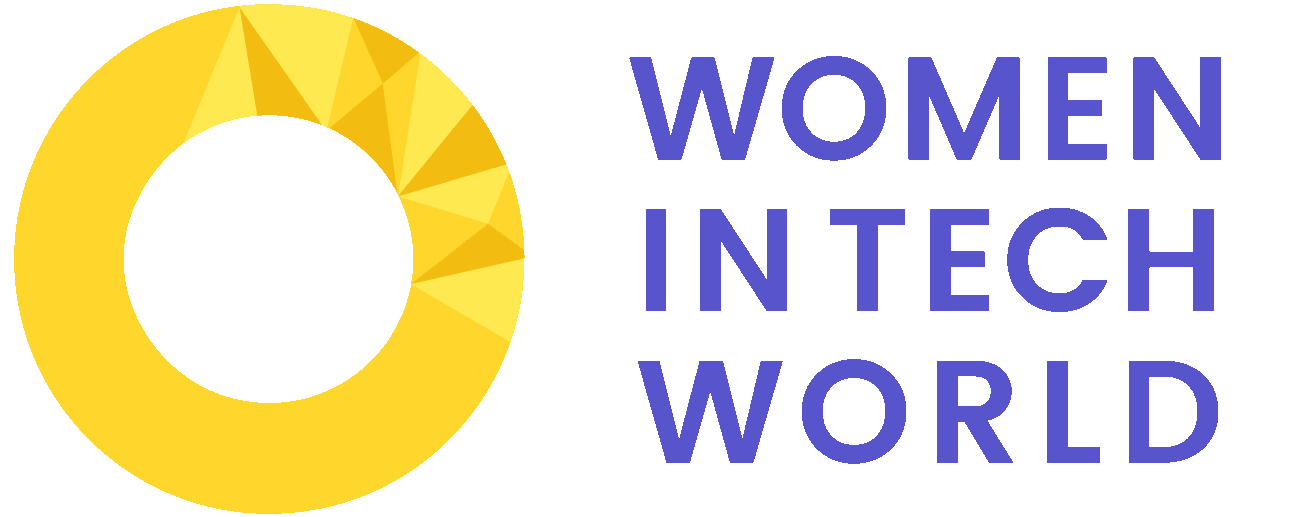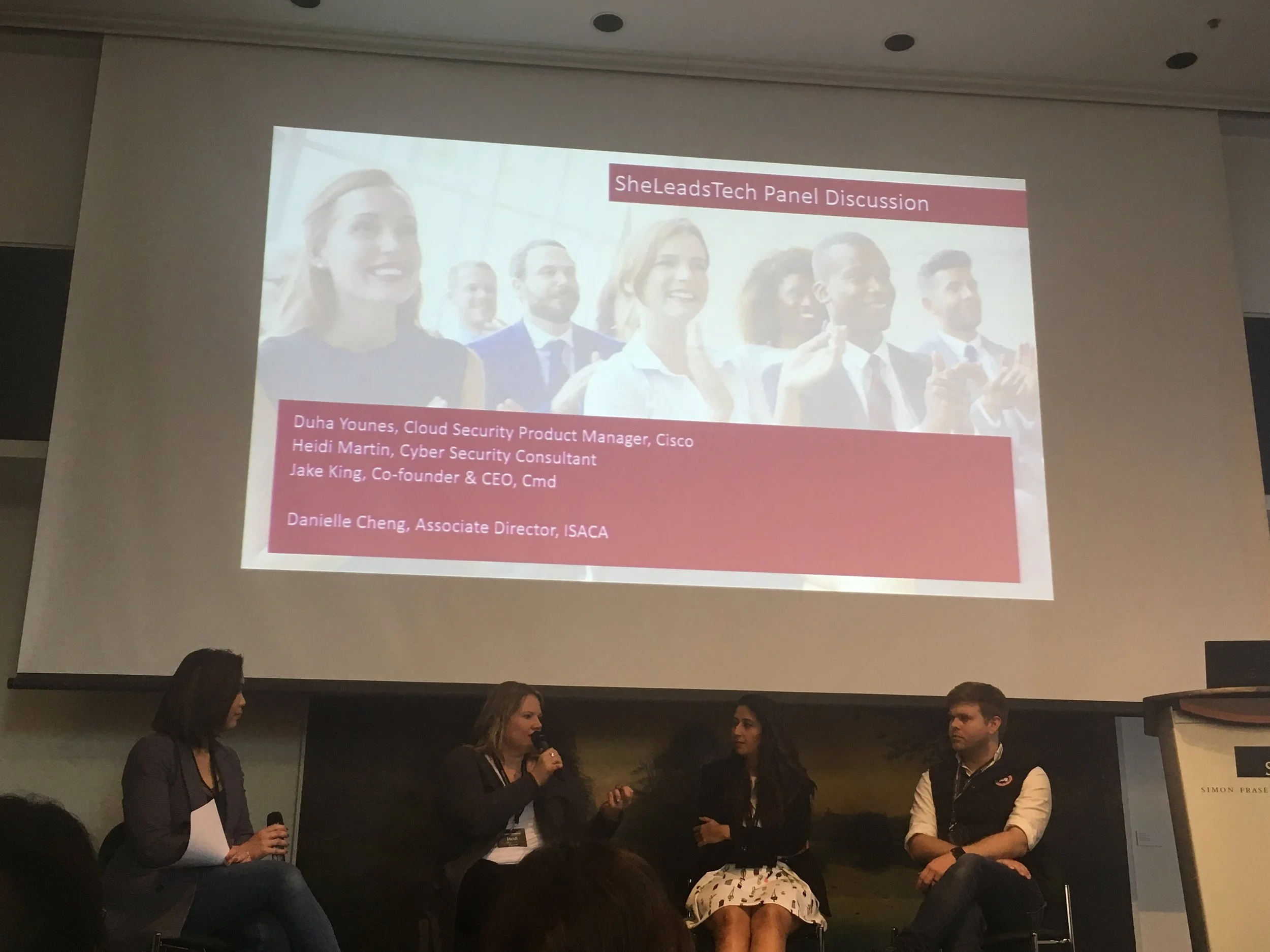Building Alliances and Finding Allies at the BSides Vancouver Conference
By Raman Kang
When we talk about women in technology, do we need to include men in the conversation? Last week SheLeads Tech hosted a conference at BSides Vancouver, a not-for-profit, independently run, community supported, cyber security conference, to discuss just that.
In the middle of the chaos I spoke with Alex Dow, Mainland Advanced Research Society (MARS) President, Executive Producer and Cat Herder at BSides Vancouver. He and I walked and talked about the journey it had been in making BSides what it is today. Early on, the event had been called out for not having any speakers who were women, however, that was because women just weren’t signing up to speak. It was then Dow began actively reaching out to women to be a part of the conference and implemented a code of conduct to ensure the environment would be inclusive and respectful. Today, 20 per cent of the speakers at BSides were women, including this panel.
Moderated by Danielle Cheng,Sales Executive, panelists, Duha Younes, Cloud Security Product Manager at Cisco, Heidi Martin, Cybersecurity Consultant and Jake King, CEO & Co-Founder, Cmd, discussed, who allies are and what roles they play in advancing women in tech, in a conversation called: Male Allies: To Be, Or Not To Be: That Is The Question!
“Building alliances with women and men are important conversations to have,” said Cheng. The panel wasted no time, sharing their thoughts, advice and possible solutions to questions about allyship, language use and connections in the workplace. When asked about the importance of having male allies, the conversation steered into a surprising direction.
An ally is someone from a dominant group that supports those at a disadvantage, said Younes. However, that person, doesn’t have to be male, she added. Although, yes, it does matter to have male allies, “an ally isn’t gender specific, it’s persona specific,” she said. The other two panelists agreed that it’s not about gender, it’s about building relationships, promoting minorities, helping people get to the table and examining processes to effectively enable people in their roles.
A process that everyone agreed needed to be examined was the typical language used in creating job descriptions. Terms like “sales ninja” sound as if they are more male orientated or like male archetypes, which keep women from applying, said Cheng. On the same note, Martin mentioned the common use of the word “guys,” to describe a group of people can be problematic. “What kind of imagery are you setting when you say things like ‘hey, you guys?’ We need make sure people know even small phrases like this exhibit a bias, she added.
“When building a job description start off with a point of mutuality,” said King. As the only male at the panel, King said it’s important to get feedback from as many sources as possible when creating such descriptions. In the process of building content, keeping inclusion in mind is always important, whether you’re a small company or a large team. “It’s about the processes, from hiring, culture, initiatives and how we communicate. These small micro corrections make all the difference.”
“It’s not a problem that’s going to be solved if we segregate, we need to work together and figure out initiatives where everyone gets involved,” said Martin.
Younes added that initiatives that are gender based or focused on changing the perceptions of only women don’t create a feeling of inclusion. “That makes it seems like it’s a women’s issue only and men can participate if they please.” Creating inclusive environments is about adding culture initiatives, not just gender-based ones, she said.
“When we think about inclusion, we need to feel comfortable calling out things that may not be inclusive, over communication can be a great way to make sure people know how you feel,” said King.
For Younes, it was simple, “less talk, more action.” Instead of just saying things like “happy women’s day,” follow it up with action to actually support women in your company.
The panel also spoke about the importance of building connections in the workplace.
“it’s very simple, at the end of the day, we’re all human,” said Younes. We go through the day to day and we can get caught up in it and not have any connection to those around us.
One of the things she does to connect with people is she keeps changing desks to meet everybody. “I’m trying to connect with everyone I haven’t been able to because we don’t work on the same projects,” she said. “We’re all wearing different coats but underneath that coat, we’re all the same,” she said. King also spoke about a “random coffee” initiative where two people would randomly be picked to have a coffee together at his previous workplace. “Everyone has a story, build relationships and give people a chance,” added Martin.
Through the discussion, it became clear, there wasn’t just one answer to the original question. Having male allies isn’t that simple. We can’t have allyship if we’re not conscious of our own biases, if we don’t examine our processes and make a conscious effort to become more inclusive and leave our assumptions at the door. Yes, we need men to be a part of the conversation, but anyone can be an ally.



